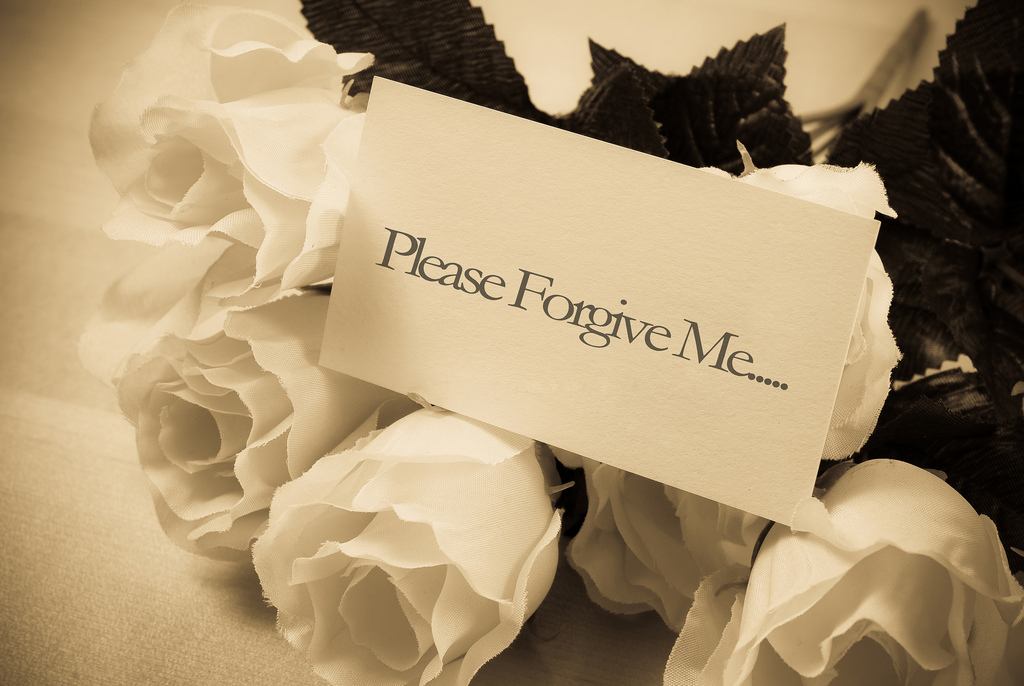
Forgiving too soon is a bad idea
By Natalie Serafini, Opinions Editor
I once took a course on conflict resolution. Between learning about active listening and how to ask open-ended questions, we learned about conflict resolution styles. Everyone has a certain way in which they deal with confrontations and arguments, and they generally fall into one of the categories of win/lose, problem solving, accommodating, compromise, and avoidance. It was immediately obvious to me what style of conflict resolution I subscribe to, since I avoid conflict as much as possible. While I’ve never been one for confrontations, I’ve also never been one to easily let go of problems. This probably has a lot to do with the fact that I avoid conflict: I don’t end up asserting that I’m pissed off, making it harder to forgive and forget.
I recently had to deal with my aversion to burying the hatchet, and of course came up against the same old problem: I couldn’t let go. This certainly had to do with the fact that I’d been simmering in a stew of avoidance for over a year, but it was also related to the significance of forgiveness. When you forgive someone, you absolve them of wrongness. They should no longer feel contrite or apologetic. The past is purposefully hemmed back into the past, and there’s a sense of finality to it.
And yet, even though forgiveness is spoken of as meaning that anger and hurt have been abandoned, I think it’s too frequently treated as simply the end goal to an argument. Assertions of feelings are rushed through; perspectives are half-heard, half-nodded through absent-mindedly; little understanding is really established; and eyes remain on the prize. From there, instead of forgiveness being an announcement of moving forward, it becomes a Band-Aid that’s too small for the wound.
A premature statement of absolution might be an attempt to gloss over problems, or maybe it’s the automatic response to an “I’m sorry.” It’s fine to recognize that feeling bad sucks, but not if it replaces asserting your perspective. Especially since stating exoneration closes the door to more discussion: once they’ve apologized and you’ve forgiven, what’s left to say? I’m in no way suggesting that people should hold onto resentment, or that the person who’s been wronged has license to be lax in moving forward. It’s simply that, in my experience, when forgiveness is offered too soon, it isn’t entirely heartfelt. And once you’ve stated that you’re ready to move forward, it’s unfair to keep bringing up the past.
Granted, the expression “To err is human; to forgive, divine” exists for a reason, and maybe the world would be a better place if people didn’t cling to grudges quite so readily. But who says that forgiveness has to always be the final destination, or that the commute has to be lickety-split? Particularly with the expectation that forgiven issues will be forgotten, absolution shouldn’t be meaningless.
I don’t think of confrontations as boxing matches: they shouldn’t be rushed through for the goal of a KO. Confrontations should be about negotiation, and attempting to see the perspective of another person. Trying to push through an argument to arrive at some semblance of agreement often leaves too much room for not actually listening to one another. It resolves too little, leaving the door open for continued enmity, while premature exoneration closes the door to any further discussion. Once all is forgiven, all should be forgotten, but that’s a dangerous place to rush to if you harbour resentment and a good memory.


